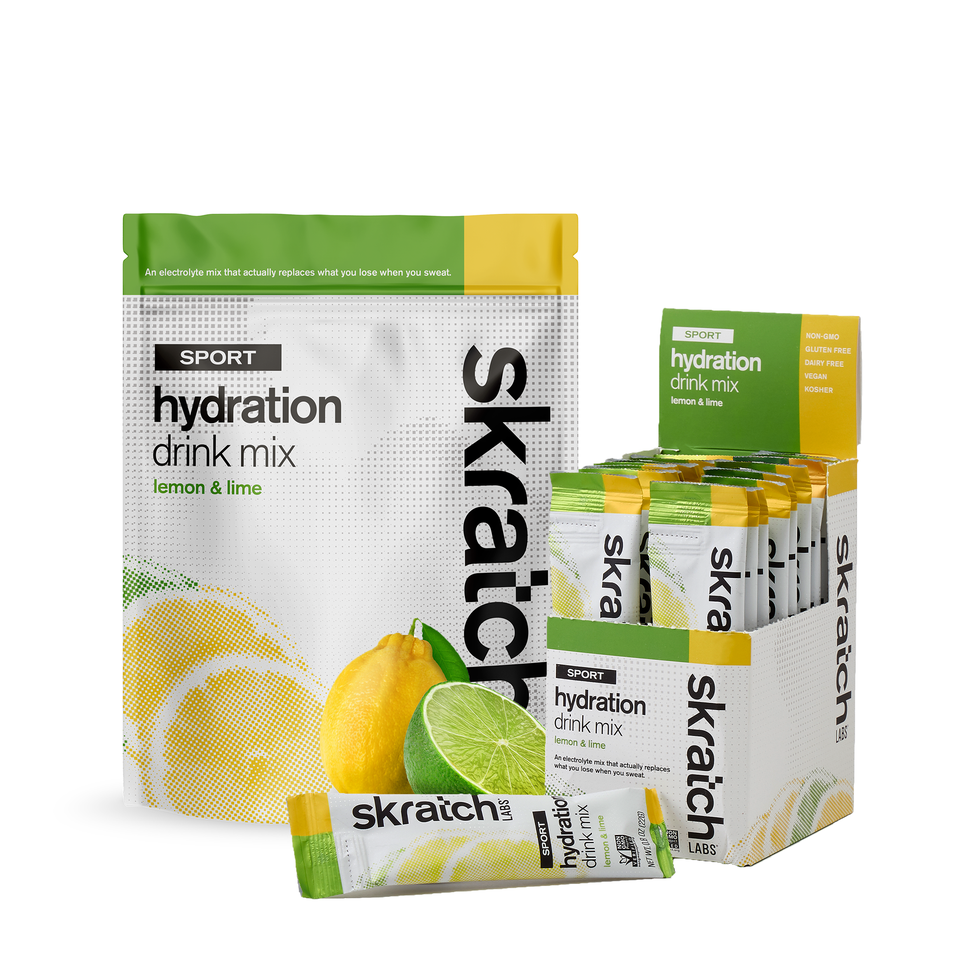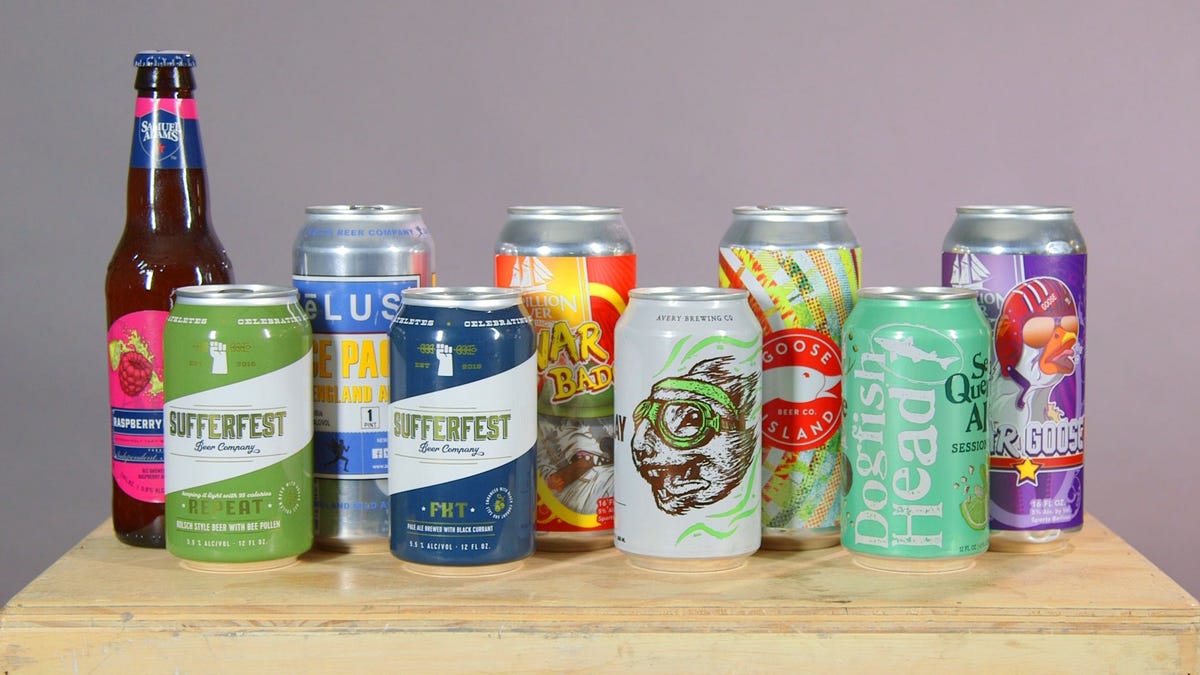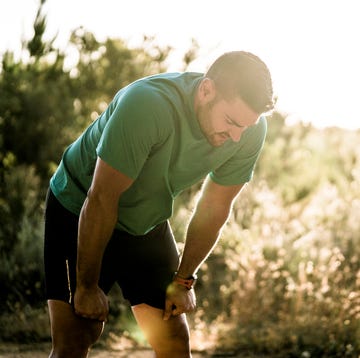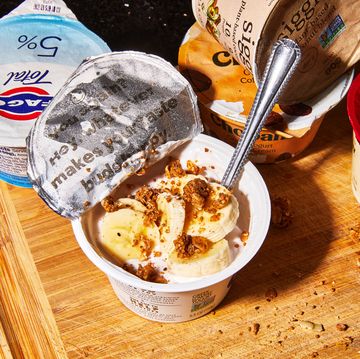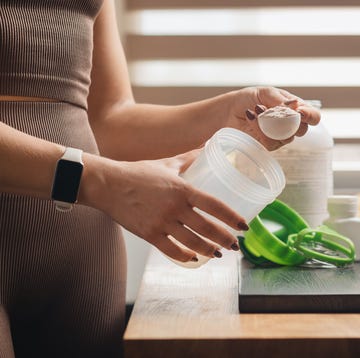Booze and exercise don’t typically mix well. But is beer brewed with electrolytes the exception to the rule?
These new wellness beers are billed as “athlete-friendly,” as they contain less alcohol than traditional brews and are infused with electrolyte minerals such as sodium, potassium, or calcium to help replenish electrolytes lost through sweat—similar to your favorite sports drink. But is drinking them really a good idea? Here’s what the experts say.
The Claim:
Beer made with electrolytes—such as Sufferfest Brewing Company’s FKT and Mispillion River Brewing Company’s War Llama—can replenish fluids and electrolytes lost from sweat during exercise just as effectively as water or sports drinks, boosting your performance or helping you recover faster .
The Evidence:
It’s no secret that alcohol has the potential to mess with your workout—it’s a diuretic, so it causes you to pee more, which can leave you dehydrated. And when you overdo it, you can end up with a headache, nausea, vomiting, and other unpleasant symptoms (a.k.a a brutal hangover) that can derail your run.
Electrolyte beers aim to counter this problem in two ways: First, their alcohol content is pretty low—around 2 to 3 percent alcohol by volume (ABV). (Most traditional brews are 4 percent ABV or higher.) And they also contain the kind of electrolyte minerals you might find in a typical sports drink.
“Sodium and potassium have a variety of roles in the body, and an important one for athletes is balanced muscle contraction,” explains sports nutritionist Amy Goodson, R.D., C.S.S.D. “When your electrolytes are out of whack, cramping can occur.” Sodium also promotes fluid retention, helping your body to rehydrate after sweating.
Are those benefits enough to counter the alcohol’s negative effects? A few studies have shown that low-alcohol beer (less than 3 percent ABV) with added sodium is less dehydrating than sodium-free beers with more alcohol when consumed during or after exercise. And all beer, regardless of the alcohol or electrolyte content, delivers carbs, which can help you refuel your stores postworkout. Beer is also a CA Notice at Collection—antioxidants Health - Injuries Advertisement - Continue Reading Below.
But that’s not enough to convince most experts that beer made with electrolytes will actually boost your performance or help you recover. Just because a low-alcohol brew is more hydrating than a boozier one doesn’t necessarily make it the best choice. Why? Because any amount of alcohol is probably still going to dehydrate you. “The dehydration effects would seem to outweigh the benefits,” Goodson says.
Running Shoes - Gear carbs and antioxidants? Those perks aren’t enough to justify choosing an electrolyte beer over, say, a healthy snack. “Beer lacks many of the other nutrients found in whole foods,” says sports nutritionist Kelly Jones, R.D., C.S.S.D. And the inflammation-fighting benefits of the polyphenols is probably trumped by alcohol’s inflammation-causing effects. (One study found that subjects who regularly drank beer in the weeks before and after a marathon experienced less postrace inflammation. The catch? The beer was non-alcoholic.)
There’s more: Regardless of what beneficial compounds might be in your brew, alcohol has the potential to mess with your performance and recovery—not enhance it. “It can interfere with glycogen replenishment by reducing uptake and storage, as well as decrease muscle repair and muscle protein synthesis,” Jones says.
Watch: Which recovery beers passed our taste test?
The Verdict:
Low-alcohol beer fortified with electrolytes may be a slightly better choice than traditional beers with higher alcohol content. But it’s far from the best option. Alcohol’s dehydrating effects will outweigh any potential benefits of the added electrolytes.
“No way does alcohol boost performance, and it likely doesn’t help with recovery,” Goodson says. “If beer has electrolytes, then yes, it is providing them as replacement, but that doesn’t mean that it counters all of the dehydrating effects.” Plus, consuming alcohol postworkout could actually slow your muscle recovery for next time.
Does that mean you should never, ever have one? Electrolyte beers are fine once in a while after exercising, like if you’re celebrating after a race, notes Goodson. But you should never have them before being active or while you’re working out, since the alcohol could make you clumsier and more prone to accidents, Jones adds. You should also steer clear if you’re coming back from an illness or an injury, since alcohol can worsen your recovery, she adds.
And when you do indulge, enjoy your beer with plenty of water and a sports drink or a snack, not in place of them. “I would never recommend athletes replace all of their fluids with beer,” she says.


